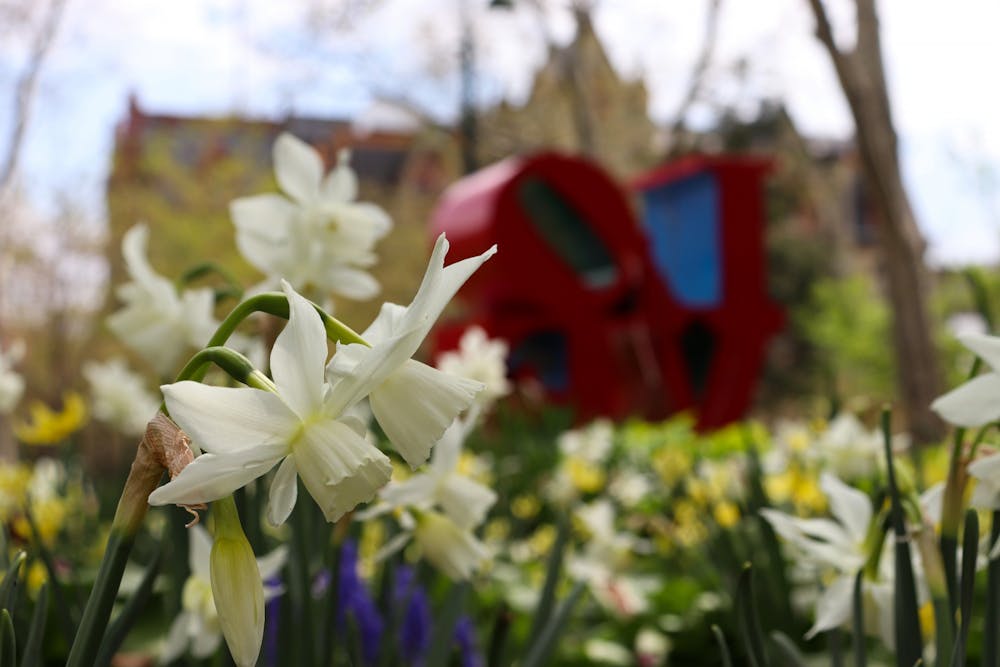The College of Liberal and Professional Studies launched an online course to teach resilience skills during the coronavirus pandemic.
The course is free to the public and will cover topics such as increasing optimism, managing anxiety, enhancing positive emotions, and strengthening relationships, according to the syllabus.
The course, titled “Resilience Skills in a Time of Uncertainty,” is taught by 1988 College graduate Karen Reivich, who is the director of resilience and positive psychology training programs for the Penn Positive Psychology Center. The course was released in April on Coursera — an online learning platform — along with four other courses taught by Penn positive psychology professors, Reivich said. Students who complete all five courses and pay a fee will receive a certificate of completion for the foundations of positive psychology specialization.
Reivich, who also received her master's degree and Ph.D. in psychology from Penn in 1992 and 1996, respectively, said the course wasn't designed specifically in response to the pandemic, although the material has changed slightly to fit the circumstances.
“We made this course a couple of years ago, but we released it for free during this pandemic so that even more people could have access to it and not have to pay,” said Reivich. “It feels to me that these are skills and interventions that can really help people right now.”
The resilience course currently has a 4.9 out of 5-star rating based on 108 reviews, and 9,704 students have enrolled as of May 3, according to the Coursera website.
“There are so many interesting stories, activities, and ideas to learn from in this course. The information may seem somewhat common at times, but the deep dive really takes you to another level,” one reviewer wrote.
Reivich said the goal of the course is to teach the science behind resilience in a way that is applicable to the different professions and demographics of the students. She said she wants students to focus less on completing all of the assignments in order, and instead focus on finding positive habits that will stick.
RELATED:
Wharton introduces six-week online course on coronavirus and global crisis management
Certificates don’t lie: Shakira graduates from online Penn philosophy course
“My hope is that students will gain one or two more additional strategies that help them feel that they’re not just coping effectively, but that they’re thriving,” she said. “I think that’s the goal of the class — for people to discover what works for them and stick with it.”
Reivich said a course on resilience is not currently offered at Penn. “Introduction to Positive Psychology” is the closest course Penn students can enroll in, she added.
“I feel very strongly that [the resilience] course is something I want students at Penn to have access to because these are techniques and skills that benefit college-age students,” Reivich said. “I’m glad Penn is making it available to not just the staff and faculty, but to the student body.”
Prior to releasing the Coursera course, Reivich gave workshops on resilience to student athletes through the Penn Athletics Wharton Leadership Academy and to various professional groups. She said she doesn’t believe there is an ideal student for the course because anyone could benefit from it.
“I’ve taught these skills to middle school kids, college students, soldiers in the army, [and] the Oklahoma City Thunder basketball team,” she said. “I don’t think there is a sub-group of students that it’s more relevant for.”
Although the course has ties to the pandemic, Reivich said the skills students will learn have broader applications.
“I don’t want people to think that this was a course designed specifically to help people with the pandemic,” she said. "[Resilience is] much broader than that. It’s not just about coping with stress; it’s about filling your life with people that matter, having strong relationships, and knowing deeply who you are at your best, and how to bring out those parts of yourself.”









